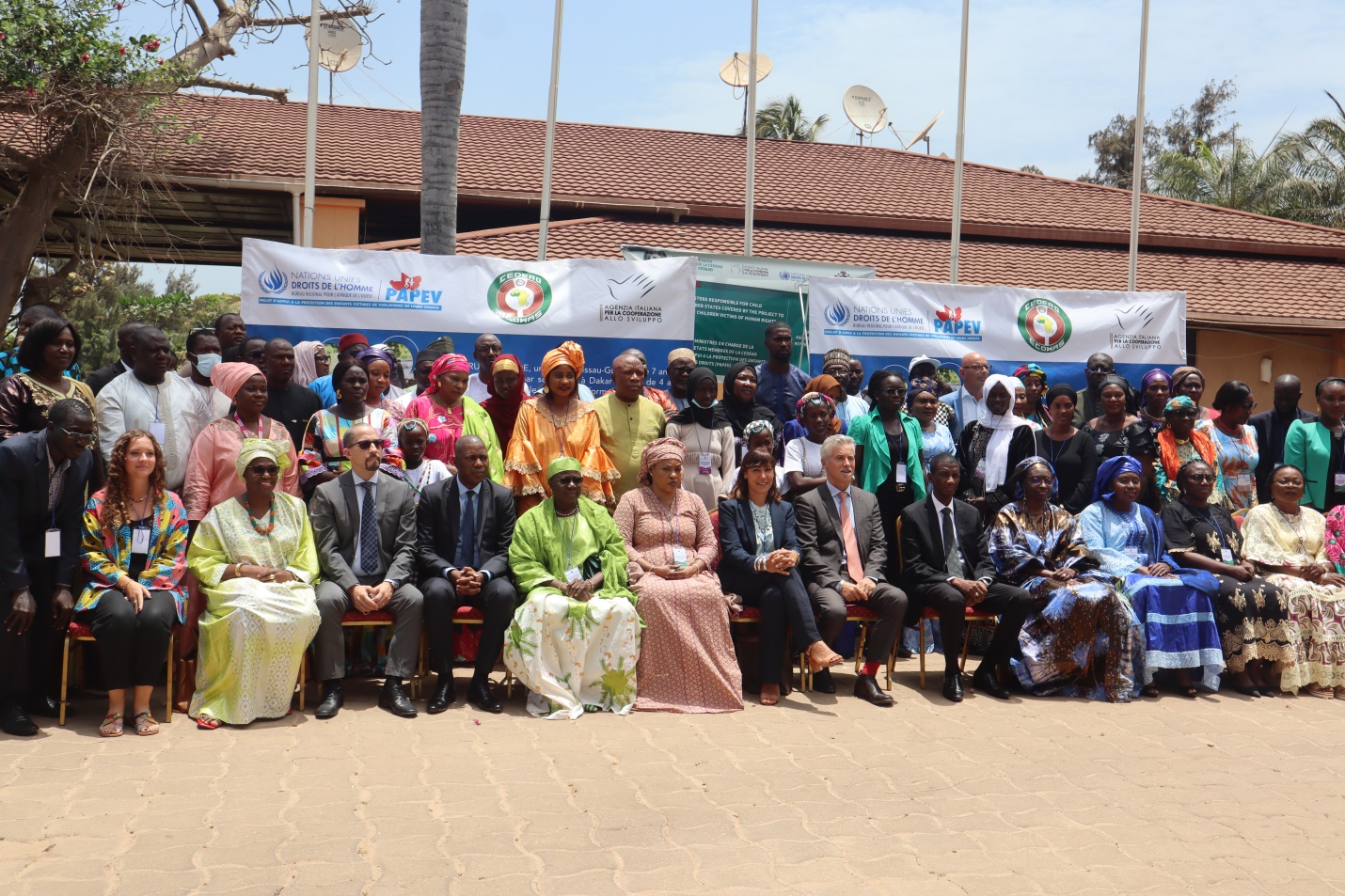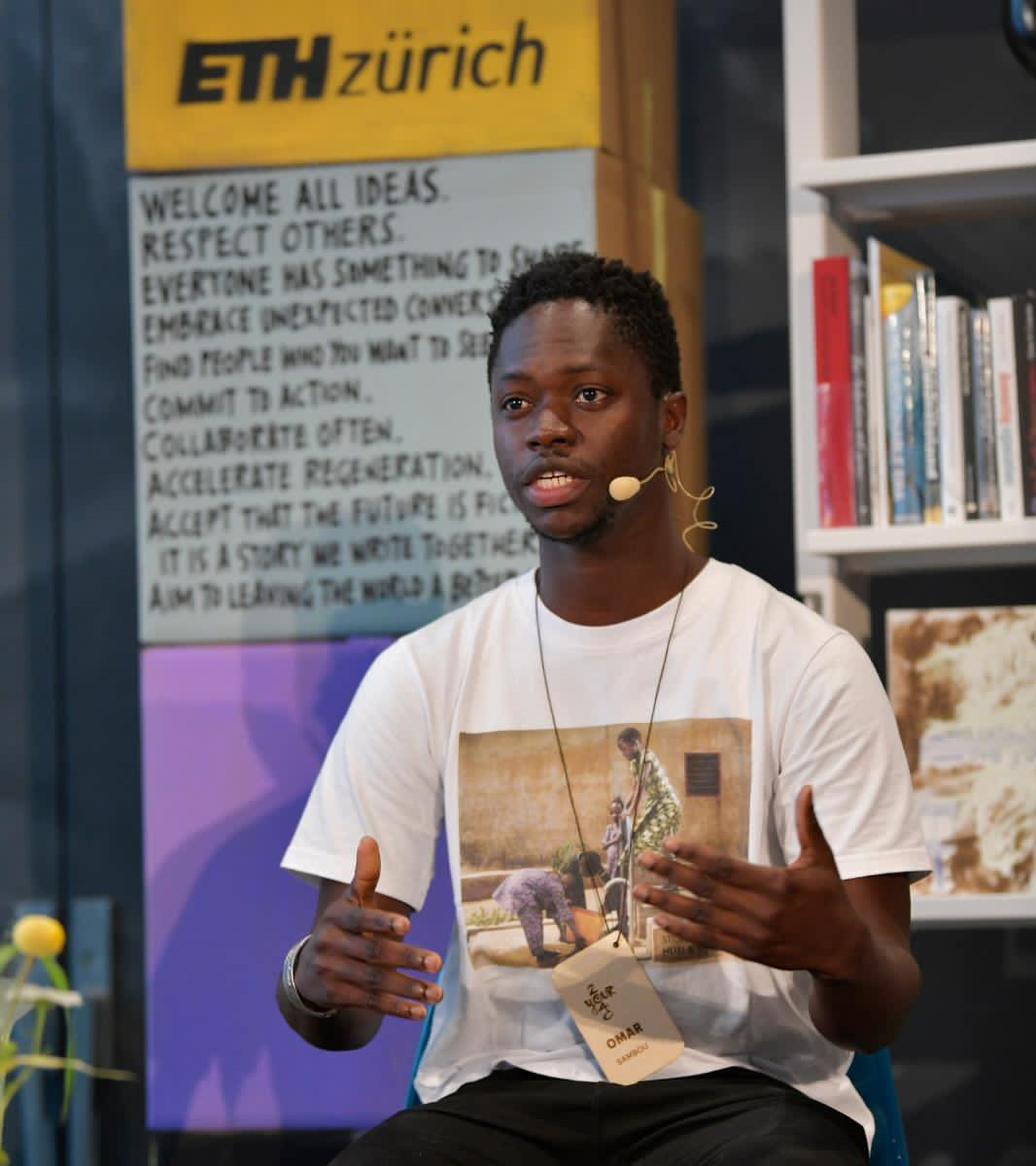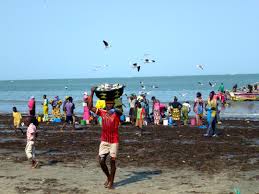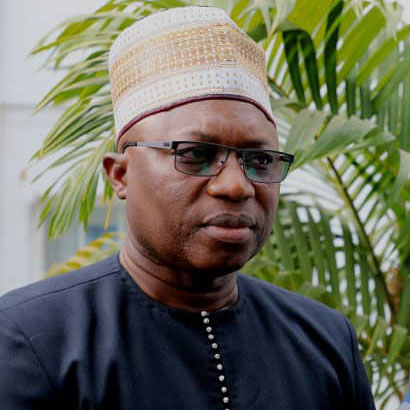The Economic Community of West African States (ECOWAS) also known as CEDEAO in French) Ministers responsible for child protection on Thursday held a forum in The Gambia supported by the project to support children victims of human rights violations.
“We are gathered here today to share experiences on cross border cooperation on child protection in order to map out strategies to support advocacy among decision makers that will promulgate reforms to integrate children’s rights into policies”, said Vice President Badara Alieu Joof in a statement read on behalf of President Adama Barrow.
He emphasized that the meeting will essentially enhance the adaptation process of the declaration on legal reforms and formulation of laws to facilitate the integration of child rights into policy formulation.
He said the ratification of the United Nations Convention on the Rights of the Child (UNCRC), by the government of The Gambia in 2005 generates a threefold obligation namely; the obligation to respect, to protect and to fulfil the rights recognized therein.
“The contextualization of this principle implies that the government of The Gambia recognises its legal obligation to establish a national child protection system, by adopting an integrated set of services, legislation and, creating institutions to promote and protect the rights of children at the national, regional and local level,” he pointed out.
He added that more specifically, the government of the Gambia has over the years taken the necessary measures to prevent and respond to violence, exploitation, neglect and abuse against children.
He noted that this also implies the provision of recovery and rehabilitation services to children who have been victims of neglect, abuse, violence and exploitation.
“In fulfilling this legal commitment, tackling child protection issues and, vulnerabilities/risks affecting children, The Gambia has adopted various institutional and legal measures and programmes aiming at strengthening the National Child Protection System.
In the near future, the government is planning to create a new national child protection strategy that will identify and respond to new child protection priority issues such as the strategy will be anchored on updated data and evidence-based information that will guide government programming and child protection interventions for the next cycle,” he disclosed.
VP Joof added that “As a commitment to promoting, fulfilling the rights of all children, the government has established two legal entities responsible for all matters, regarding the protection of children. This includes a Ministry in charge of Gender, Children and Social Welfare (MoGCSW) and a Directorate of Children’s Affairs (DCA).”
He went further that as the main institution in charge of Children, the MoGCSW created “to address the gaps in coverage and to align programmes more effectively in order to meet the varied needs of the population, to provide guidance to increase coordination of interventions, through the adoption of a systematic and harmonized mechanism of actualizing Gambia’s development goals.
He noted that the Ministry is therefore mandated to deal with challenges related to influencing other Ministries on children and gender issues,
“The United Nations Convention on the Rights of the Child (UNCRC) (article 19) affirms the right for the child to be protected from all forms of physical or mental violence, injury or abuse, neglect or negligent treatment, maltreatment or exploitation, including sexual abuse, while in the care of parent(s), legal guardian(s), or any other person who has the care of the child. Since 2018, various new situations have occurred at the national level which will be reflected in the upcoming national child protection strategy,” VP Joof pointed out.
He added that one of these has been the COVID-19 pandemic which has affected vulnerable populations worldwide, including children.
According to him, to serve this purpose, the Ministry of Gender, Children and Social Welfare (MoGCSW) has initiated a new situation analysis to generate and collect evidence-based information that will feed into national planning processes and, therefore, guide the development of upcoming child protection interventions.
VP Joof noted that, Female Genital Mutilation (FGM/C), also known as female circumcision is a cultural practice deeply rooted in the beliefs and perceptions of Gambians. According to him, due to the long-standing advocacy and awareness campaigns organized countrywide by government institutions, NGOs/CSOs and grassroots organizations, female circumcision which is widely known as a violation of the right to girls and women, was expressly criminalised by the Women’s Amendment Act 2015.
“This implies that FGM/C is punishable by law and perpetrators liable to prison.
Similarly, child marriage is prohibited since 2016. This long-standing cultural practice was banned through an amendment of Section 2 and Section 24 of The Children’s Act, which set the legal age for marriage at 18 years,” he said.
He, however, revealed that in the recent amendment of Section 2 of the Children’s Act, child marriage is defined as a “marriage contracted between a child and an adult or between a child and another child”. This amendment states that “a child shall not be capable of contracting a valid marriage and, child marriage is prohibited.
VP Joof further emphasized that the young age of the Gambian population is a potential, because children are major actors in a country’s future and development, adding they are an immense potential for an added value and benefit for their communities at the social, political and economic levels.





